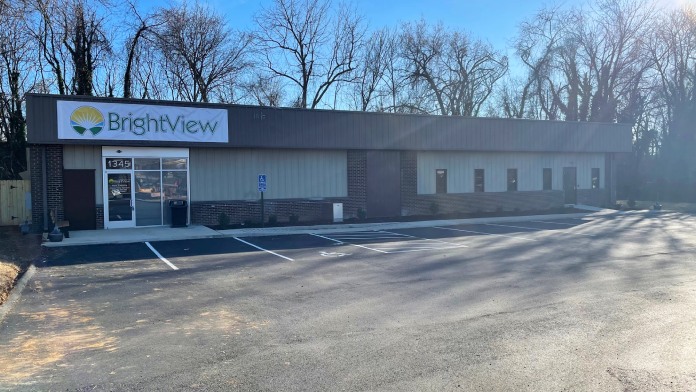BrightView Roanoke

About BrightView Roanoke
BrightView Roanoke embodies hope for opioid-dependent adults in Virginia’s independent city of Roanoke who are seeking a more meaningful and sustainable life. They’re located in Roanoke’s northeast quadrant, about three miles from Mill Mountain Park, the Harrison Museum of African American Culture and the Virginia Museum of Transportation.
BrightView’s team strives to create a welcoming environment where you’re treated with respect as you work to overcome opioid use challenges. Long-term wellness is supported through a holistic approach combining medication-assisted treatment (MAT), flexible outpatient care and social support services.
This accessibility is made possible by accepting Medicaid and Medicare alongside a variety of private health insurance plans. Their social support team even helps set up insurance coverage if you’re uninsured. Flexible payment plans may be arranged as well. The clinic proudly welcomes walk-ins on weekdays to ensure prompt care. You can even start dosing on your first day if medically appropriate
BrightView is backed by many past clients who deeply appreciate the support they received from the team. One noted, “Staff is absolutely excellent, medical providers are great, only complaint is that I didn’t find BrightView sooner!…I cannot emphasize how much I love this place! BEST outpatient recovery and MAT program in the whole Roanoke Valley!”
Integrated and Medication-Supported Opioid Recovery
At BrightView, recovery begins with a detailed assessment to guide personalized recovery planning. This plan may involve a prescription of either methadone, Suboxone or Vivitrol to ease painful withdrawal symptoms and curb physiological cravings. In addition, you’ll attend therapy groups and individual sessions to address the emotional and psychological factors fueling your opioid dependence while building long-term strategies for relapse prevention and sobriety.
A dedicated social support team will assess and help you navigate needs like housing, employment, transportation and medical care.
| Levels of Care | Detox Service Setting | Programs | Payment Options |
|---|---|---|---|
|
Inpatient and residential programs provide round-the-clock medical and emotional support as you live at the treatment facility. This level of care may be recommended if you have severe addictions or mental health conditions since it removes outside distractions and allows you to focus solely on therapy. |
In outpatient therapy, you’ll attend therapy sessions several times each week while living at home. This is ideal if you have a strong support system and a lower risk of relapse. Outpatient treatment offers flexibility to maintain work, school or family obligations. |
||
|
Inpatient detox occurs in a dedicated treatment facility. You’ll live there around the clock and receive intensive medical support and supervision to help manage your withdrawal symptoms. It is suitable for individuals with moderate to severe addictions as it ensures a stable detox environment. |
Outpatient detox gives you access to medically supervised withdrawal services while still allowing you to live at home. You’ll attend a clinic for treatment and monitoring. This flexible option is suitable for those with mild to moderate withdrawal symptoms who have strong support systems. |
||
|
Alcohol detox programs offer medical support to help individuals withdraw safely from alcohol. Your care team may use medications to ease your symptoms and provide medical monitoring to address complications. |
Drug detox programs support individuals who are withdrawing from addictive substances like cocaine and heroin. Medical support helps you manage symptoms in a controlled and safe environment so you can achieve initial sobriety. |
||
|
Private Insurance
|
Self Pay
|
Levels of Care
Inpatient and residential programs provide round-the-clock medical and emotional support as you live at the treatment facility. This level of care may be recommended if you have severe addictions or mental health conditions since it removes outside distractions and allows you to focus solely on therapy.
In outpatient therapy, you’ll attend therapy sessions several times each week while living at home. This is ideal if you have a strong support system and a lower risk of relapse. Outpatient treatment offers flexibility to maintain work, school or family obligations.
Detox Service Setting
Inpatient detox occurs in a dedicated treatment facility. You’ll live there around the clock and receive intensive medical support and supervision to help manage your withdrawal symptoms. It is suitable for individuals with moderate to severe addictions as it ensures a stable detox environment.
Outpatient detox gives you access to medically supervised withdrawal services while still allowing you to live at home. You’ll attend a clinic for treatment and monitoring. This flexible option is suitable for those with mild to moderate withdrawal symptoms who have strong support systems.
Programs
Alcohol detox programs offer medical support to help individuals withdraw safely from alcohol. Your care team may use medications to ease your symptoms and provide medical monitoring to address complications.
Drug detox programs support individuals who are withdrawing from addictive substances like cocaine and heroin. Medical support helps you manage symptoms in a controlled and safe environment so you can achieve initial sobriety.
Contact

Chika Uchendu is a multi-niche and seasoned SEO writer with expertise in personal finance, technology and health. He’s had over 10 years of experience creating impactful content that resonates with diverse audiences. His journalism and digital marketing background enables him to combine data-driven analysis with engaging storytelling. This helps drive engagement and grants target audiences access to valuable information.
Chika has worked for Benzinga, Motley Fool, Webopedia and many other popular online media outlets on a freelance and contractual basis. He is using his voice to drive awareness and meaningful change among people dealing with the pandemic of substance use disorder. Chika is an ambivert who enjoys sports, hiking, reading and video gaming.

Peter W.Y. Lee is a historian with a focus in American Cold War culture. He has examined how popular culture has served as a coping mechanism for the challenges and changes impacting American society throughout the twentieth century.




